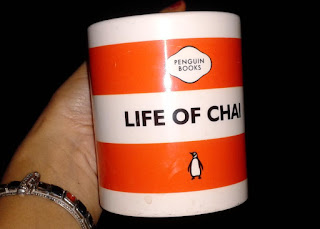In a small house in the green Tindharia hills lived an old man. And with him lived a part of my childhood.
Saila was our one time chowkidar and my friend forever. Tall, gaunt, with a deeply lined face through which shone two merry eyes. A tooth lost in some drunken brawl, long forgotten. Khaki shorts faded by the sun and many monsoons. Dusty feet.
I was ten when we met. My father had just been transferred from a remote tea estate in Upper Assam to one in Terai and with a good school nearby at last, did not want to keep me in Calcutta any longer.
I liked coming to the tea garden for holidays. But my friends were all in Calcutta. And being an only child did not help.
Saila changed all that.
On the day I arrived, he greeted me with his trademark ear-to-ear grin which made his eyes almost disappear. As a welcoming gift, he carved me a lethal looking dagger from a piece of bamboo. I, understandably, became his devoted follower.
With Saila around, life was a blur of activity. We spent long hours setting up wire snares for the rabbits which raided the kitchen garden every night. We poked around dead leaf for discarded snakeskin. We made newer and better catapults but forgot to use them as hundreds of parrots screeched and descended in a blur of green on the Jamun trees for the semi-ripe fruit.
Saila was the wise one, with answers to all questions a ten-year old could think of. He could tell why the wind blew this way and not that way, why the peepul leaves turned a deep crimson in October, which shaded pathway was home to which ghost or how many pineapples a wild elephant preferred for breakfast.
Not everyone held Saila in high regard. My parents considered him a bit of a nuisance but a tolerable one. The others were more definite in their feelings, because Saila was rather generous with his advice. He told the gardener exactly where to plant the roses, he instructed the cook on the finer points of making lemon soufflé. He also knew how much petrol Somra the driver was filching.
Then one day, Saila retired from service and went away to live with his son in Tindharia.
Years passed. I was now in college in Calcutta. One summer, two friends and I went trekking to Sandakphu. Going to the hills was like a homecoming. I was back again in the wilderness of my childhood days, the scents of the forest, among bursts of lilac rhododendron, my horizon filled with white clouds and blue hillsides.
We stayed in Darjeeling for several days. Suddenly, Tindharia and Saila seemed very near. An hour's journey by bus later I was there in front of a row of houses perched precariously on the Tindharia hillside. Several questions in broken Nepali, a couple of misdirections later, I was standing at Saila's door.
Saila came out. The years had taken their toll. The tall frame was bowed, the face was even more lined and he had lost all his teeth. He could not believe that the person standing before him was the little boy he had befriended long ago. But memory flooded back. And the famous smile followed.
We sat in his little room overlooking the quiet hillside and talked. For two, maybe three hours, we talked. Those were troubled times in the hills, with widespread unrest and discontent. But our memories held their own.
And as we spoke long into the evening, we could hear once again the screeching of hundreds of parrots, wheeling and descending, in a blur of green, on those faraway Jamun trees.
Meet the writer:
Dip Sengupta Dip grew up in tea estates in Cachar and Terai and the first words he picked up as a two-year old was not in Bengali but in “Madhesiya”, much to the horror of sundry relatives. He has a rich and varied experience of “Bagan life”, including elephants dragging out refrigerators from the dining room ,leopards on the porch and snakes in the storm drains. When memory overwhelms, he tries to put theses in writing and marvel at the wonder of it all. An advertising professional of 25 years, Dip now lives in Gurgaon, with his wife and two daughters. Occasionally he drives up to the mountains to feel once more the magical stillness of the tea- gardens and hear the sound of a leaf fall to the ground.
Do you have a chai story of your own to share? Send it to me here, please : indianchaistories@gmail.com.
Happy reading! Cheers to the spirit of Indian Tea!
ADD THIS LINK TO YOUR FAVOURITES :

